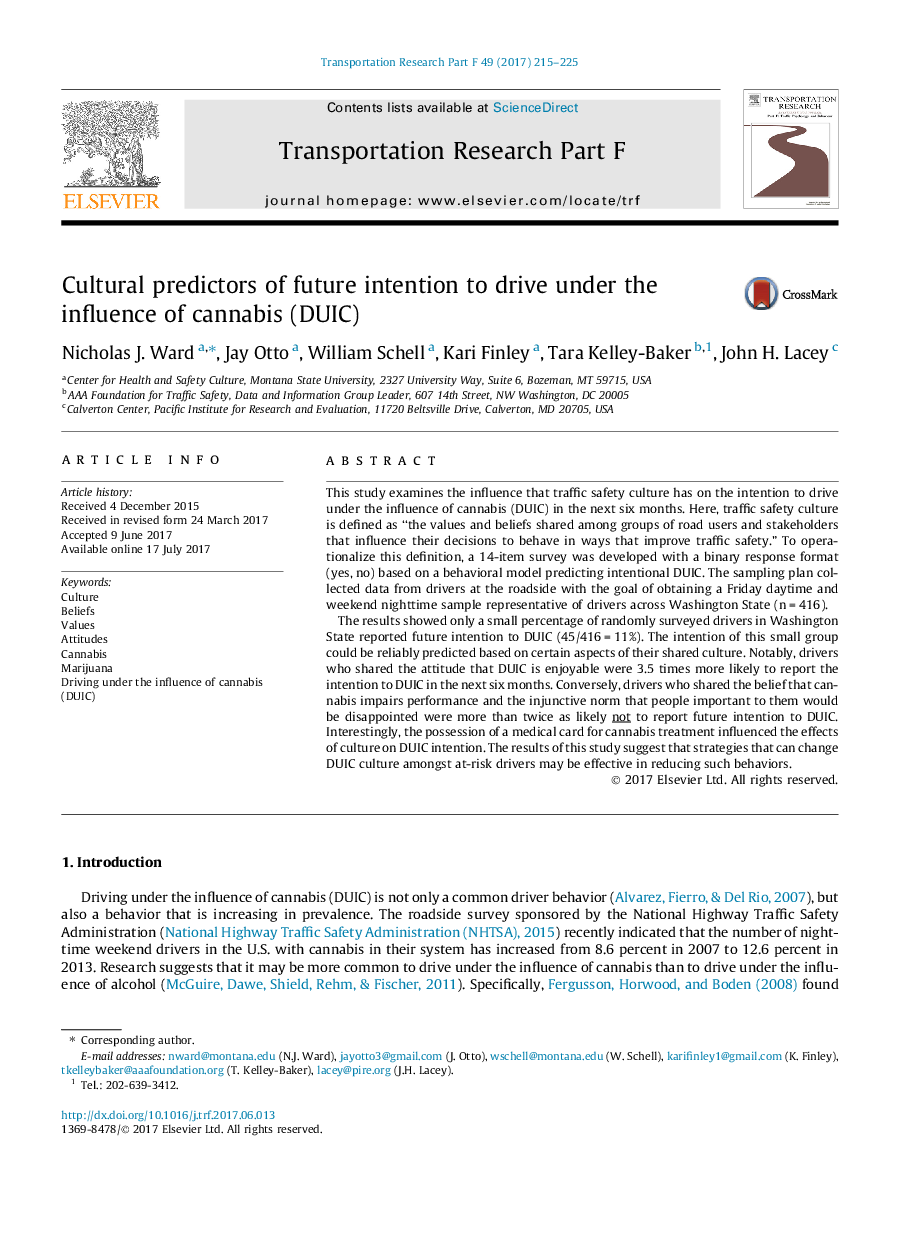| کد مقاله | کد نشریه | سال انتشار | مقاله انگلیسی | نسخه تمام متن |
|---|---|---|---|---|
| 5037288 | 1472437 | 2017 | 11 صفحه PDF | دانلود رایگان |

- This study examines the influence of traffic safety culture on intention to drive after using cannabis.
- Intention to drive was predicted by the attitude that DUIC is enjoyable.
- DUIC intention was less likely in conjunction with beliefs that cannabis impairs performance.
- DUIC intention was less likely in conjunction with the injunctive norm that people important to them would be disappointed.
- The possession of a medical card for cannabis treatment influenced the effects of culture on DUIC intention.
- Strategies to address cultural perceptions about driving after using cannabis may be effective in reducing such behaviors.
This study examines the influence that traffic safety culture has on the intention to drive under the influence of cannabis (DUIC) in the next six months. Here, traffic safety culture is defined as “the values and beliefs shared among groups of road users and stakeholders that influence their decisions to behave in ways that improve traffic safety.” To operationalize this definition, a 14-item survey was developed with a binary response format (yes, no) based on a behavioral model predicting intentional DUIC. The sampling plan collected data from drivers at the roadside with the goal of obtaining a Friday daytime and weekend nighttime sample representative of drivers across Washington State (n = 416).The results showed only a small percentage of randomly surveyed drivers in Washington State reported future intention to DUIC (45/416 = 11%). The intention of this small group could be reliably predicted based on certain aspects of their shared culture. Notably, drivers who shared the attitude that DUIC is enjoyable were 3.5 times more likely to report the intention to DUIC in the next six months. Conversely, drivers who shared the belief that cannabis impairs performance and the injunctive norm that people important to them would be disappointed were more than twice as likely not to report future intention to DUIC. Interestingly, the possession of a medical card for cannabis treatment influenced the effects of culture on DUIC intention. The results of this study suggest that strategies that can change DUIC culture amongst at-risk drivers may be effective in reducing such behaviors.
Journal: Transportation Research Part F: Traffic Psychology and Behaviour - Volume 49, August 2017, Pages 215-225